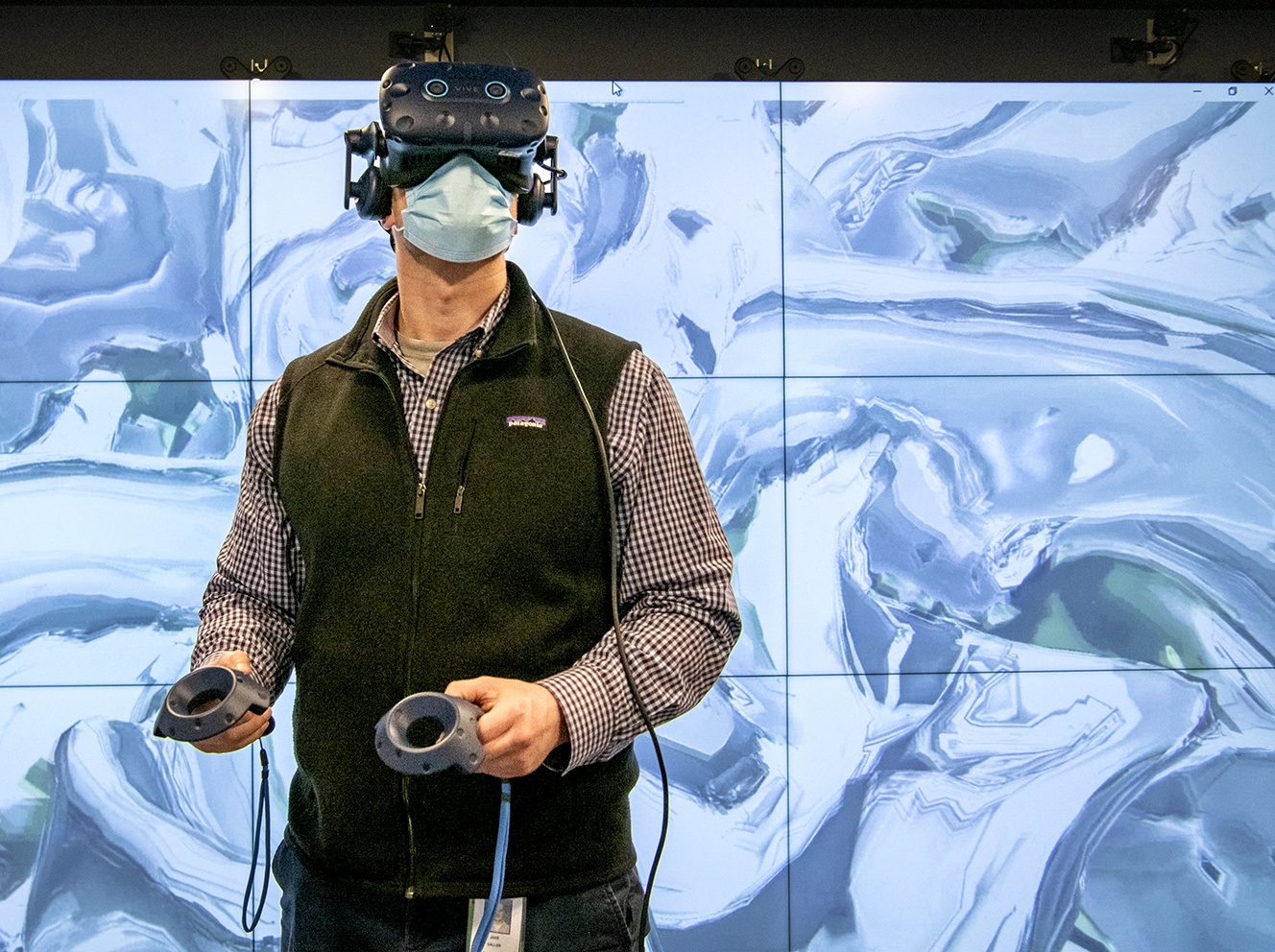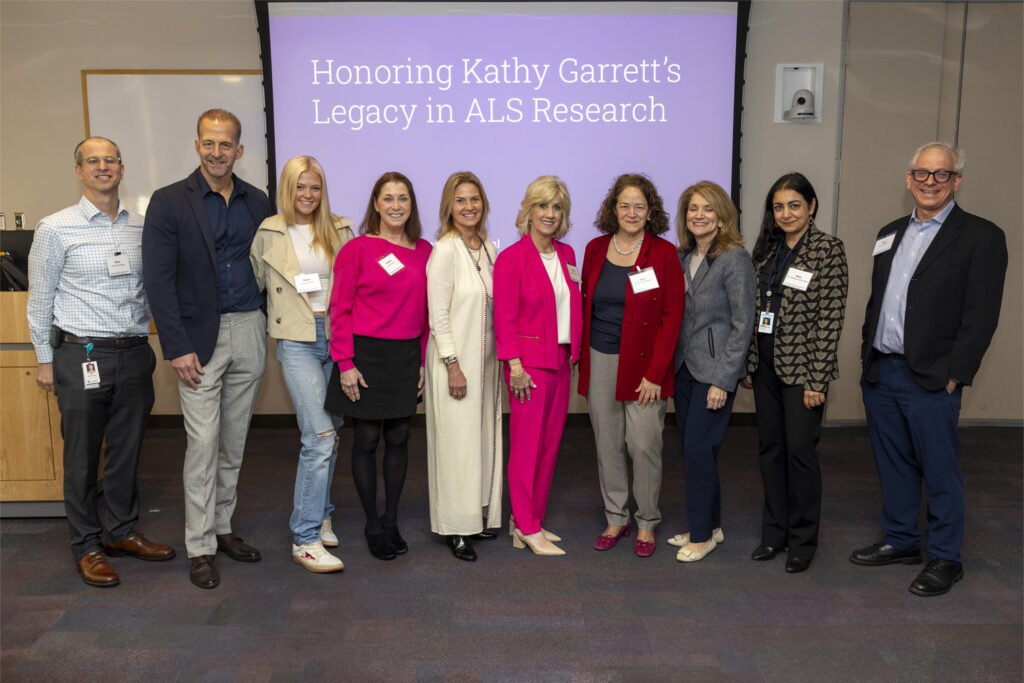Nestled in Massachusetts General Hospital’s Charlestown Navy Yard campus is a warren of more than two dozen state-of-the-art research, laboratory and examination rooms featuring virtual reality, data visualization, 3D models, digital physiological monitoring tools and so much more. After years of planning, remodeling, COVID delays and the constant reconsiderations of how to apply the newest technology, the Clinical and Translational Research Unit (CTRU) is open. The CTRU — a partnership between the Interdisciplinary Brain Center (IBC) and Institute for Innovation in Imaging (i3) — brings together neurologists, psychiatrists, radiologists, electrical engineers, geneticists and biostatisticians to find solutions for patients with any number of brain diseases and disorders.
“These rooms allow us to bring expertise and the most advanced technologies together to measure an individual’s cognitive functions and behaviors in a comprehensive way,” says Steven Arnold, MD, CTRU Director, Translational Neurology Head and Managing Director of the IBC. “In the Virtual Reality cave we plan to measure brain function with EEG and near infrared spectroscopy as people engage in virtual activities involving anything from memory and spatial awareness in Alzheimer’s disease, to anxiety and social interactions in PTSD,” he says. “Wearable devices, a gait mat and high-speed audio-video recorders already allow us to measure subtle changes in things like balance or foot dragging or tremors that can be early features of Parkinson’s disease. The comfortable exam rooms are well-designed for interviewing, physical exams and procedures like blood draws, lumbar punctures or skin biopsies.”
Let’s take a walk down the hall …
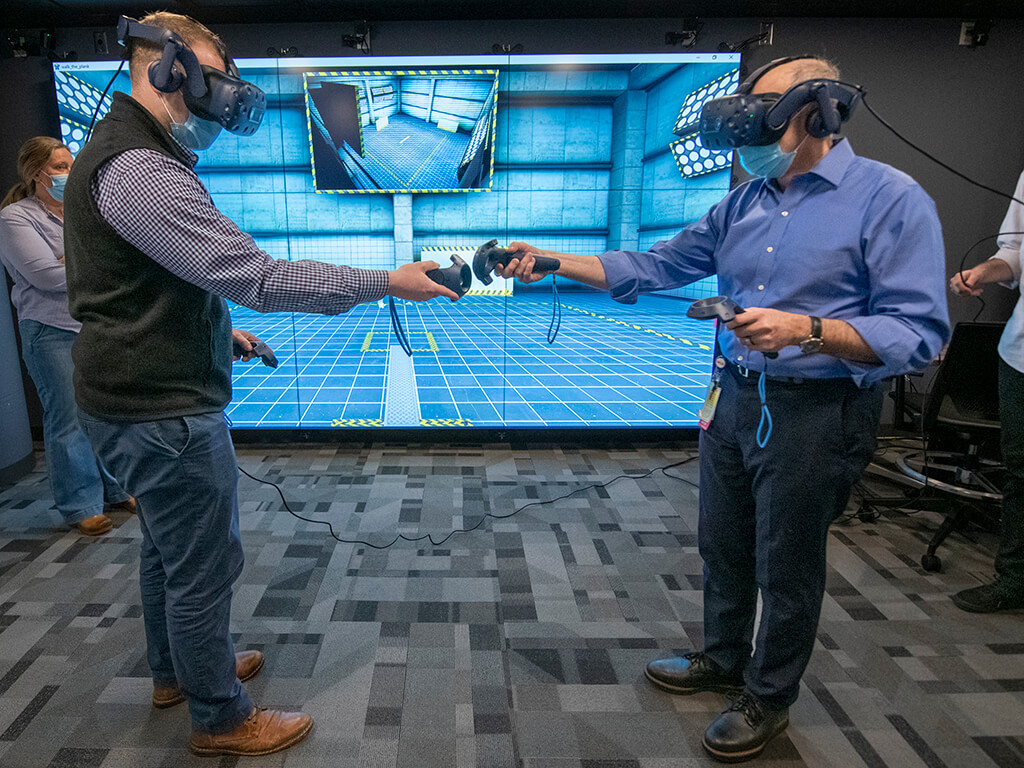
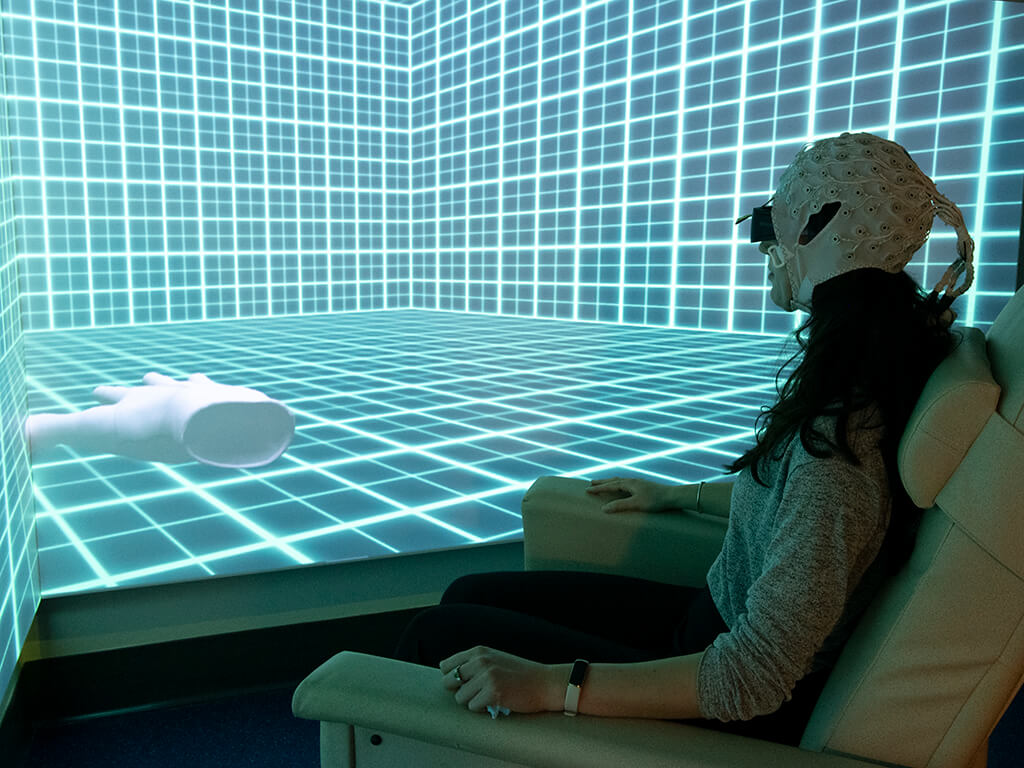

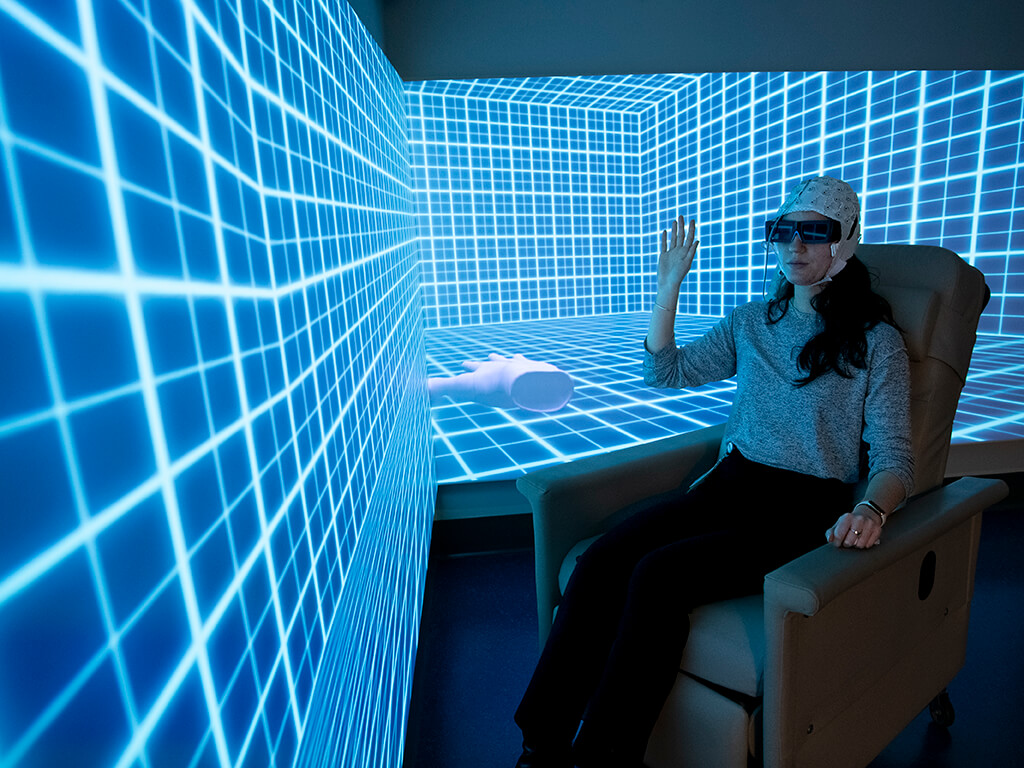
“Mass General is truly a place where compassionate care intersects, and actually drives brilliant research. With the CTRU, we hope to stimulate those critically important collaborations that move discoveries in the lab to cures for Alzheimer’s and other conditions that affect cognition, behavior and emotion.”
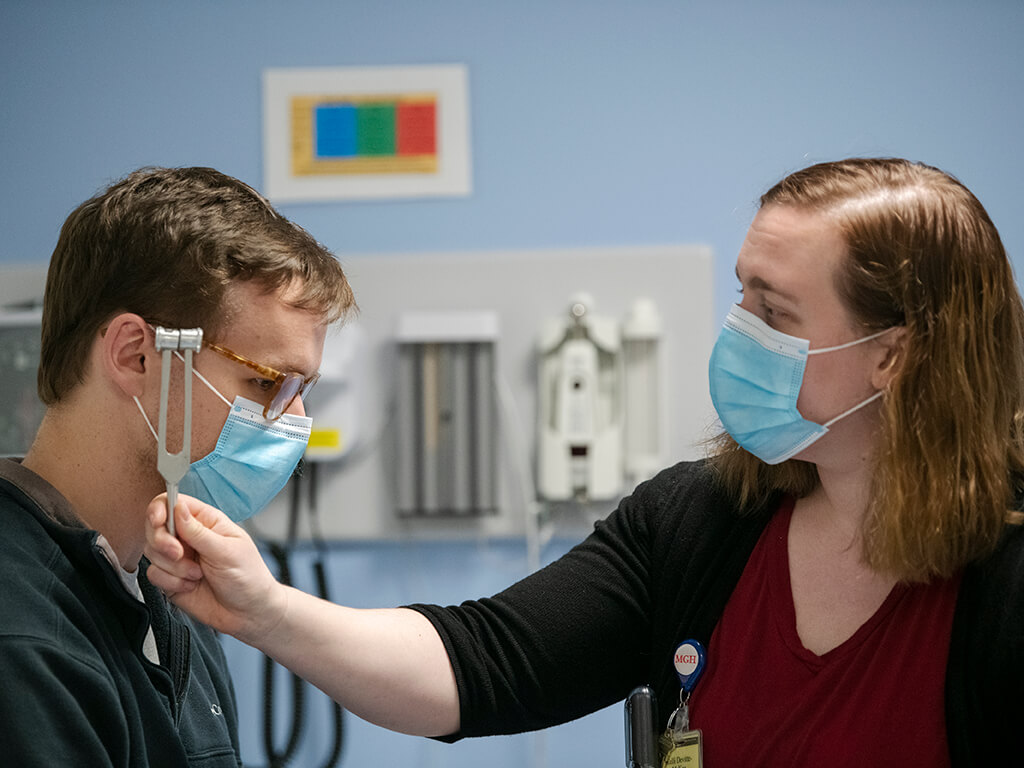
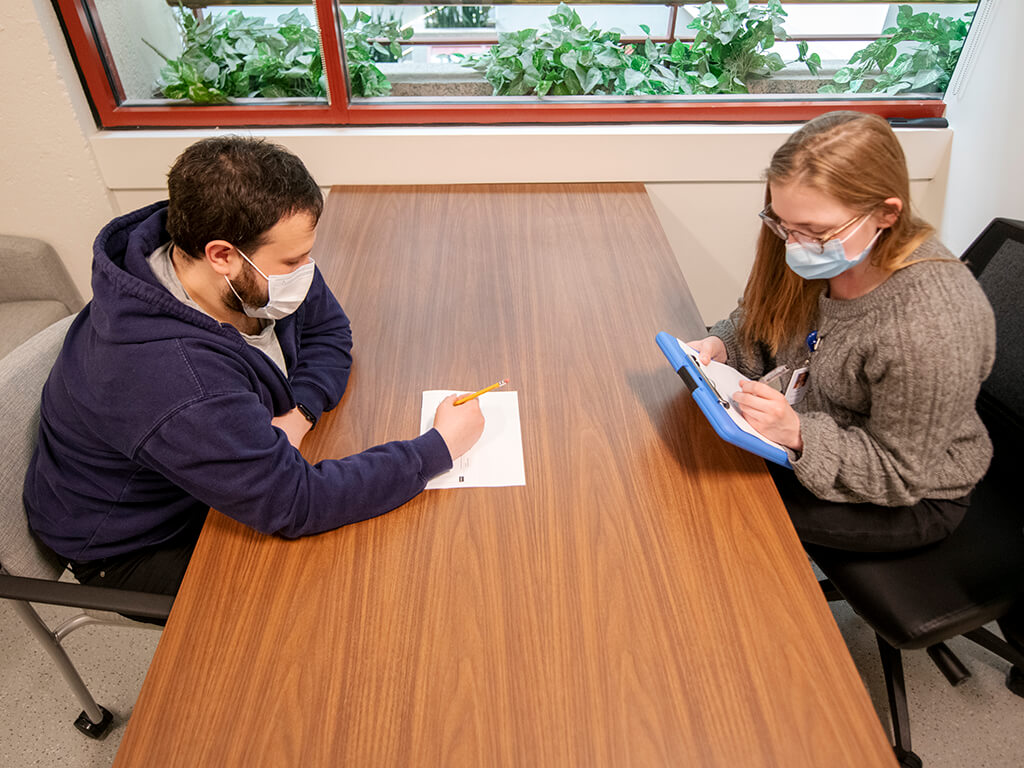
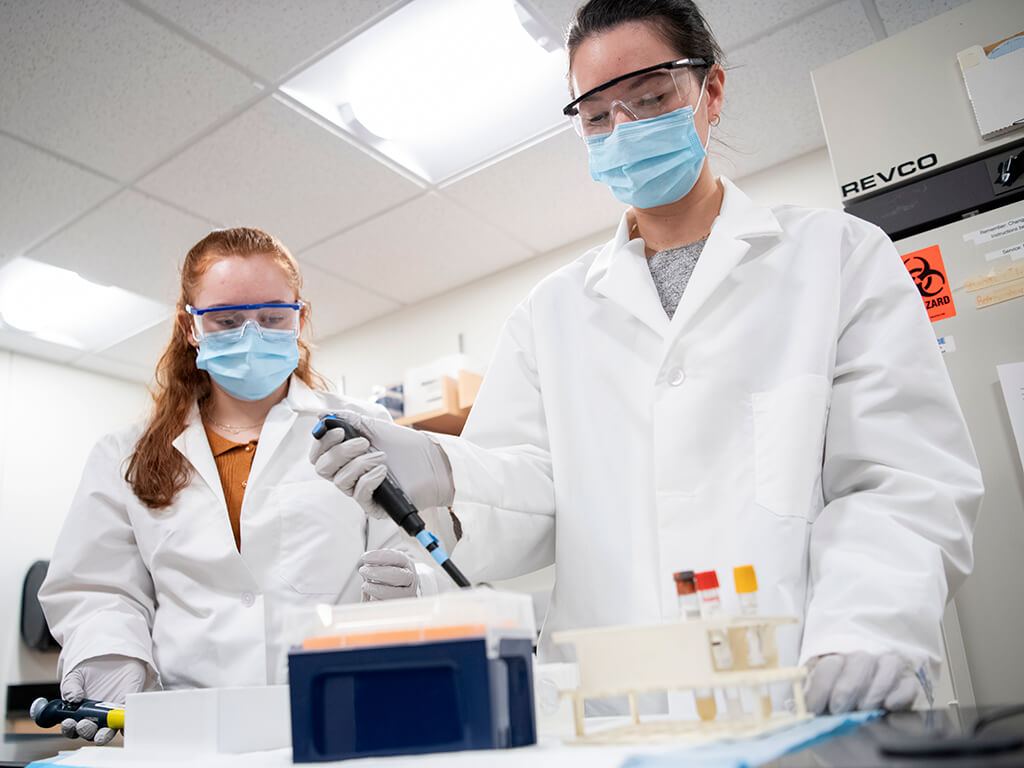
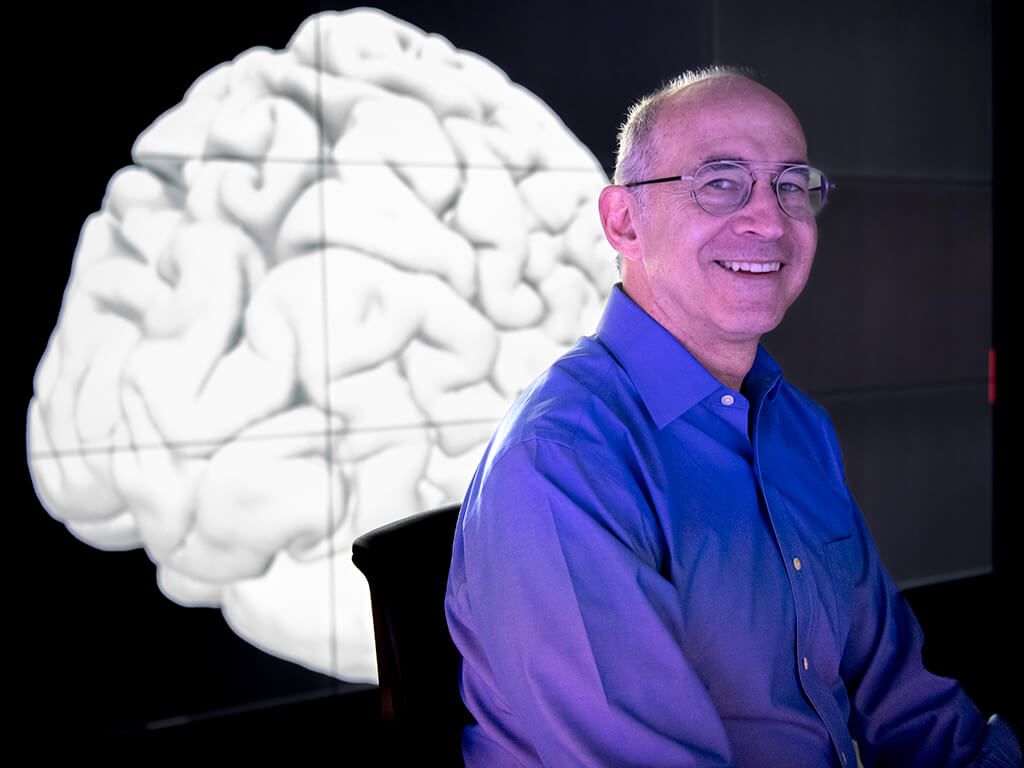
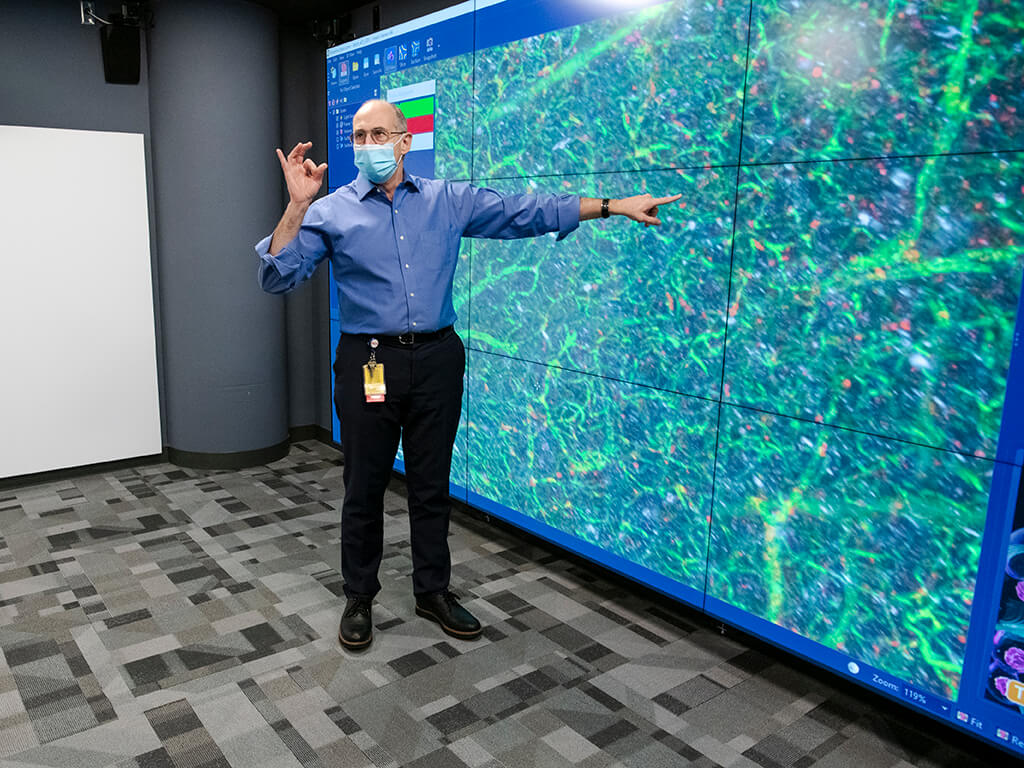
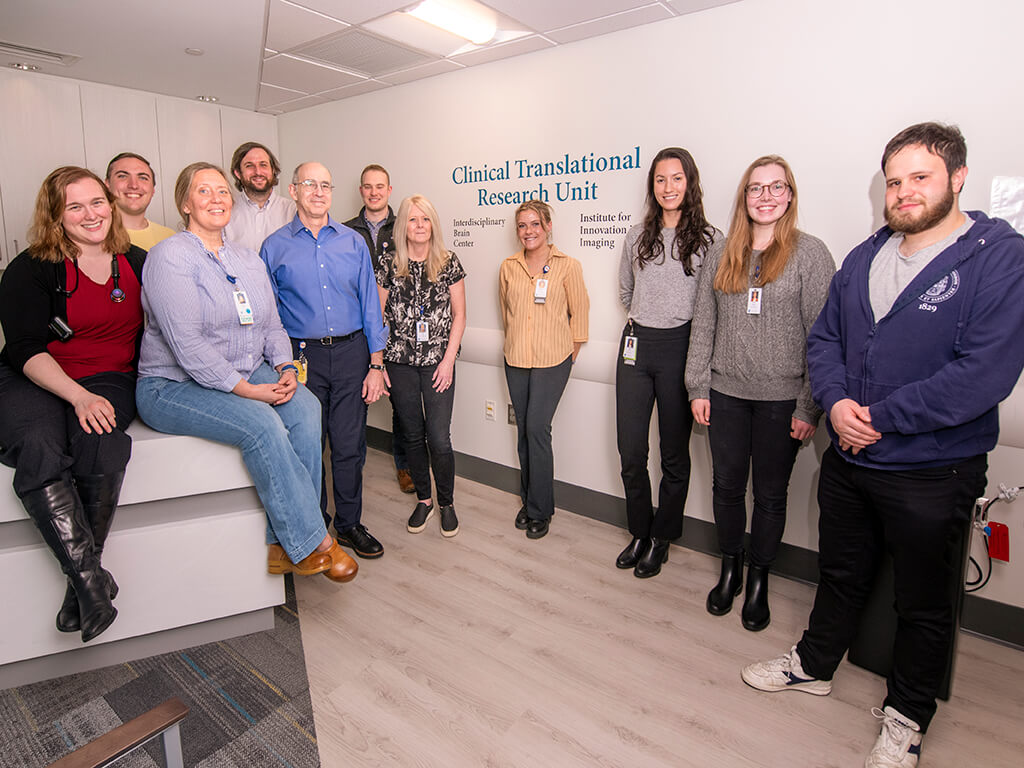
The IBC is the culmination of a cross-departmental collaboration by Drs. Arnold, Bradley Hyman, MD, PhD, (Neurology), Deborah Blacker, MD, ScD, (Psychiatry), Bruce Rosen, MD, PhD, (Martinos Center for Biomedical Imaging) and many others across Mass General and launched with support from the Massachusetts Life Sciences Center and the Challenger Foundation.
“The i3 was developed to foster collaborations that bring new tools and techniques in medical imaging closer to the marketplace. The CRTU marries the sophisticated technology developed in the i3 and Martinos Center, with the deep knowledge our clinical faculty have with neurobiology and psychiatric syndromes,” says Dr. Rosen. “We are eager to leverage the CTRU to find answers to the most challenging questions facing us in medicine today — and in the future.”
“We know that major diseases like Alzheimer’s result from a complex combination of triggers, and they affect individuals in different ways,” says Dr. Hyman, a world-renowned Alzheimer’s disease researcher and clinician who serves as Director of the Massachusetts Alzheimer Disease Research Center (MADRC) at Mass General, Co-Director of the MassGeneral Institute for Neurodegenerative Disease (MIND) and co-Vice Chair for Research in Neurology at Mass General. “We need to pursue a wide array of strategies, including genomics, imaging, clinical trial design, brain health maintenance and innovative patient care to develop treatments. The goal is to intervene earlier with existing therapeutic strategies, while we pursue the potential of innovative and state of the art ideas like gene therapies,” Dr. Hyman says. “We are incredibly hopeful that we can help provide treatments and, eventually, cures for our patients with these devastating diseases.”
“Mass General is truly a place where compassionate care intersects, and actually drives brilliant research,” says Dr. Arnold. “With the CTRU, we hope to stimulate those critically important collaborations that move discoveries in the lab to cures for Alzheimer’s and other conditions that affect cognition, behavior and emotion,” he says.
To learn more about how you can support research advances in Alzheimer’s disease and other brain disorders, please contact us.
These rooms allow us to bring expertise and the most advanced technologies together to measure an individual’s cognitive functions and behaviors in a comprehensive way.
